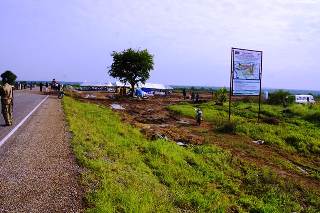S. Sudan losing millions in fake land transactions, says official
June 24, 2013 (JUBA) – Unscrupulous land transactions have cost South Sudan government millions of money, which remain unaccounted for, an official said.

According to Article 179 [a] South Sudan’s Transitional Constitution, state land, property tax and royalties are sources of revenue for states.
A proper follow-up of land related matters, Alikaya said, would help government cover up for the gaps that could arise as a result the oil shutdown.
Meanwhile, the undersecretary has hailed the upcoming land policy currently before parliament, saying the new law would resolve land matter between the central government and states.
In February, South Sudan cabinet adopted the long awaited land policy, which seeks to address issues pertaining to land acquisition and its management in the new nation.
“Land policy is a complementary component of national housing policy”, Alikaya said in an interview last week.
The new policy, he further revealed, will address post-war conflict over land rights, informal settlements in cities and towns, as well as conflicts over access to land with pasture and water.
Land grabbing, which is the acquisition of land without regard for the interests of existing land rights holders, and disagreements regarding boundaries between counties and payams (districts), will also be addressed by the policy.
The policy adopts a number of guiding principles which include security of land rights, equitable access to land and provision of security and diversity in tenure types.
The policy has divided land into three categories: public, private and community-owned lands.
Unclear land policy has been blamed for scaring off investors and encouraging land grabbing for many years to the lack of proper channels and procedures for the acquisition of land by individuals and institutions.
South Sudan parliament, Alikaya said, has already passed the much-awaited national housing policy, which seeks to attract direct foreign investments in the country.
Currently, banks in South Sudan do not provide long-term loans for housing, making investments in housing projects an expensive venture.
At least 1.2 million housing units, officials from the housing ministry said, are due to be built in the country in the coming years.
(ST)
